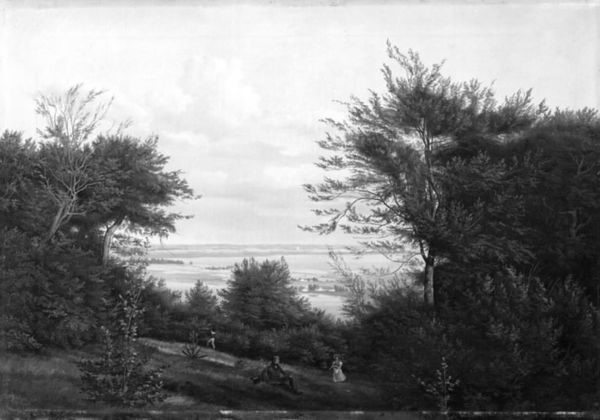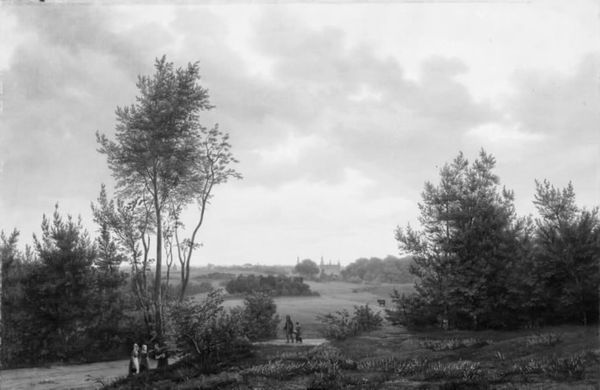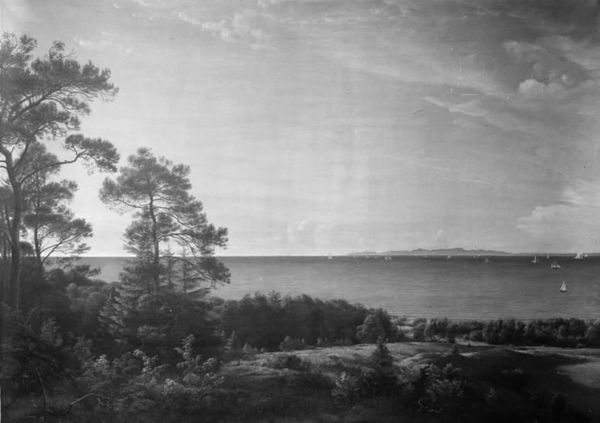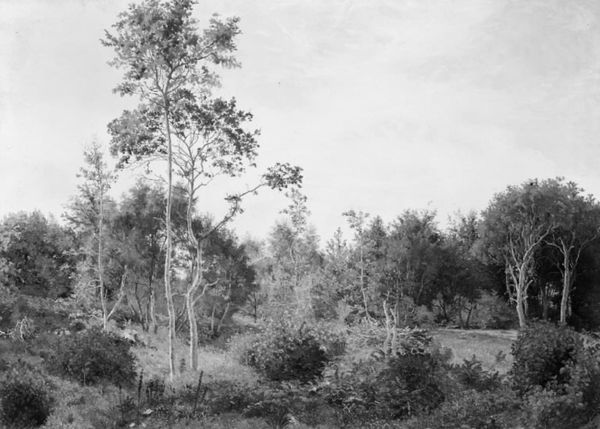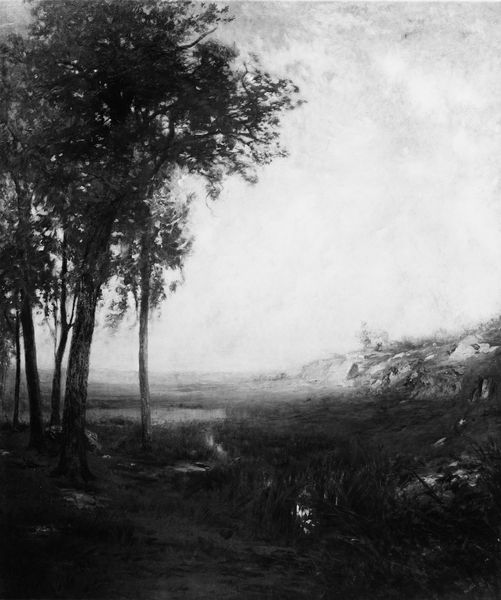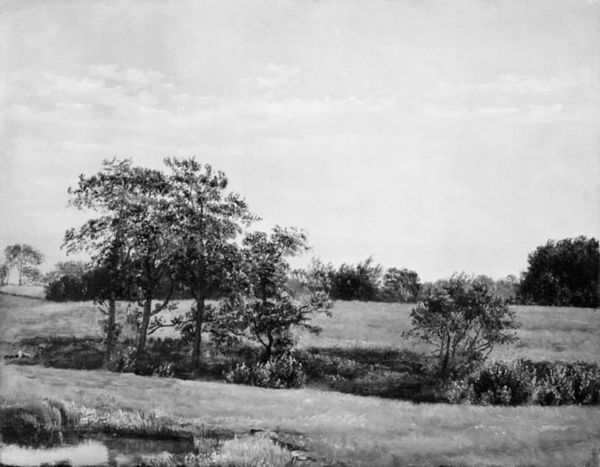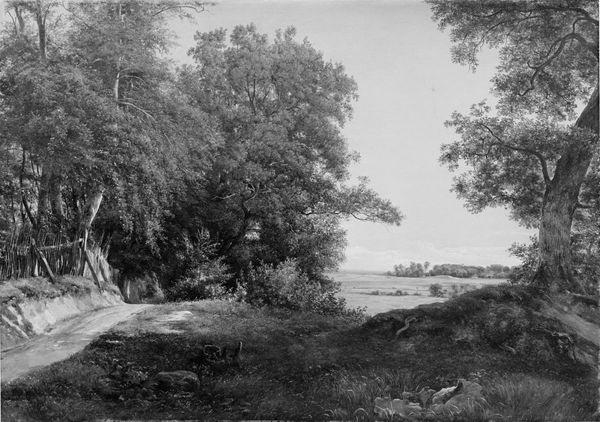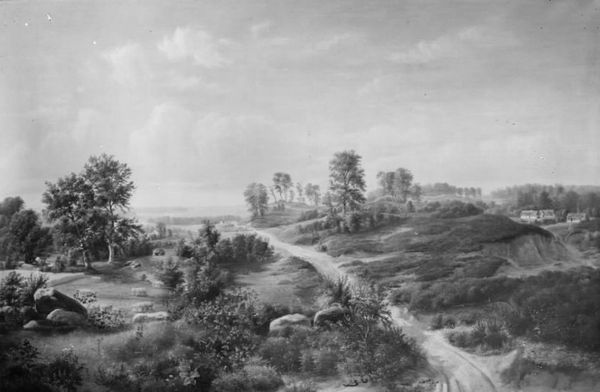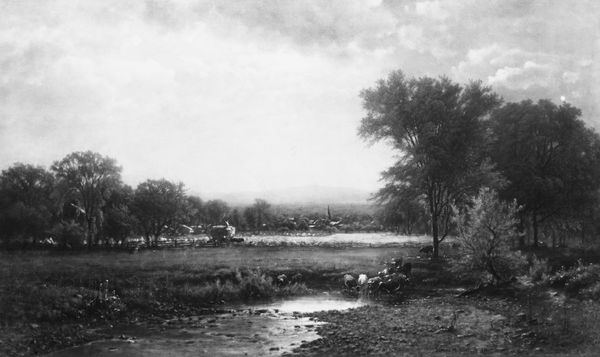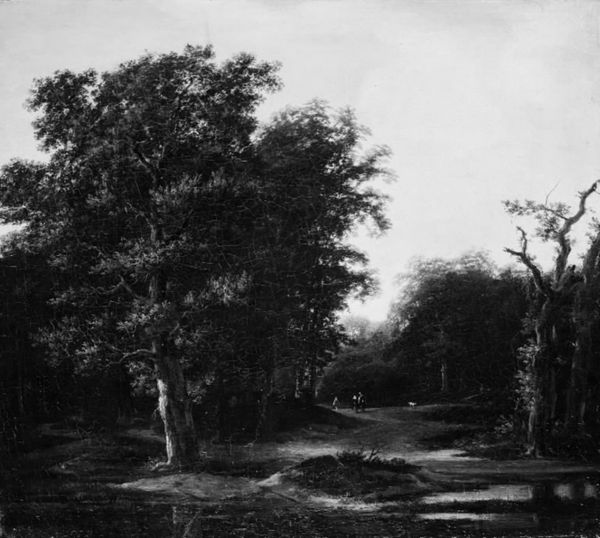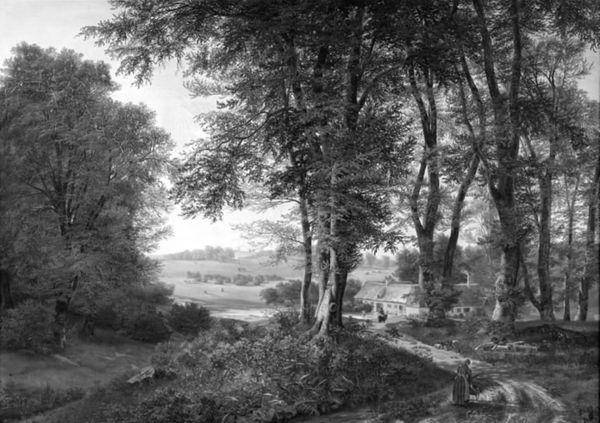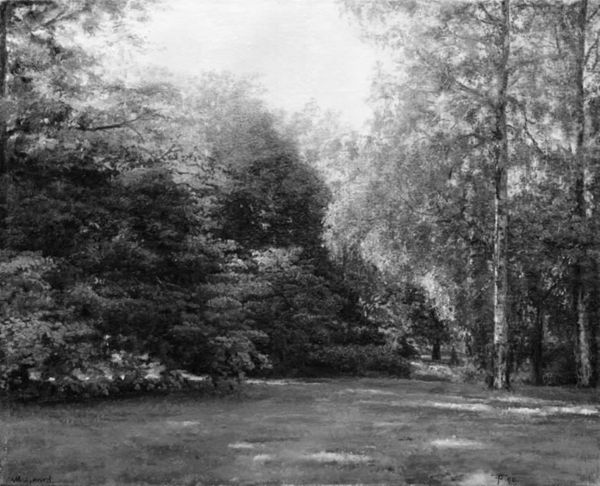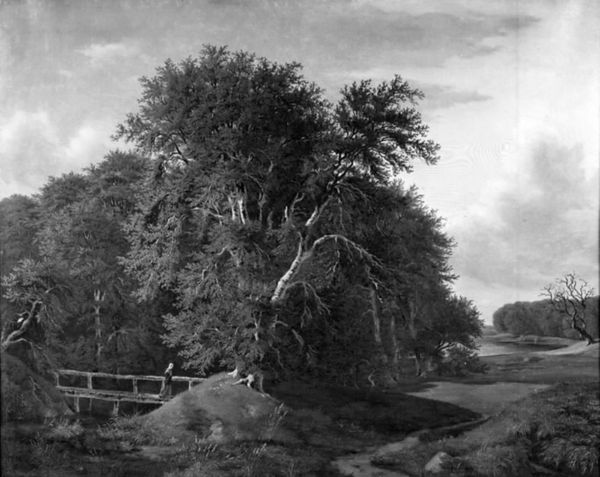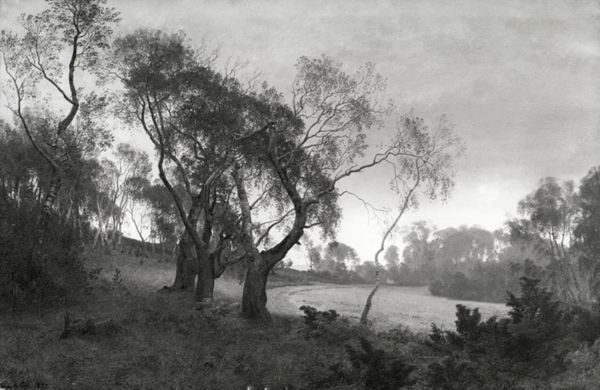
The Ruins of Stegeborg Castle near Vettern in Eastern Gotland 1789 - 1834
0:00
0:00
canvas
#
black and white photography
#
countryside
#
black and white format
#
nature
#
b w
#
canvas
#
monochrome photography
#
nature heavy
#
fog
#
scotland
#
shadow overcast
Dimensions: 93 cm (height) x 126 cm (width) (Netto)
Curator: So, here we have "The Ruins of Stegeborg Castle near Vettern in Eastern Gotland," a work rendered in oil on canvas, created sometime between 1789 and 1834 by Carl Johan Fahlkrantz. Editor: Wow, it's like looking into a memory. Sort of faded and haunting, but incredibly beautiful. The contrast between the dark trees and the soft, hazy background is just magnetic. Curator: Exactly, the monochromatic palette invites reflection on themes of memory and time, especially within the context of Swedish national identity. Ruins were often used to evoke a sense of a glorious past but also a more turbulent present. What narratives do these kinds of nostalgic landscapes reinforce? Editor: I hear that, but I just see... a great spot for a picnic! Okay, a melancholic picnic, maybe. But still! The light, even in the monochrome, makes you want to be *there*, breathing that air, wondering what stories the stones could tell. Curator: That immediate emotional draw is something Fahlkrantz was consciously working with. Romanticism in the late 18th and early 19th centuries used the awe-inspiring aspects of nature to connect it with humanity's small, insignificant place within the historical process. In whose interest were the tales of glory told? And whose narrative was ignored in that construction? Editor: Sure, the power structures are there, whispering. Still, though...it speaks to this deep-seated longing for a simpler, perhaps imagined past, like when all you had to worry about was where you were going to lay your blanket to read a book, haha. Curator: I'd say there is an inherent tension at play here. Fahlkrantz does romanticize decline; yet, in showing the ruins consumed by nature, it could be interpreted as a subtle nod towards eventual change and reclamations of the narrative of a glorious Sweden. Who gets to dream within the "simpler past"? Editor: Fair point, I am probably just hungry! Even so, looking at this I imagine myself writing some bad poetry and eating too many pastries near this lake, with maybe, just maybe, some of that critique of power woven into the story as well. I wonder if there will be crumbs for the ducks... Curator: I think with this work, Fahlkrantz shows the complexities of his cultural position and the different narratives embedded within his vision. Editor: Absolutely, and sometimes those narratives involve ducks!
Comments
No comments
Be the first to comment and join the conversation on the ultimate creative platform.
